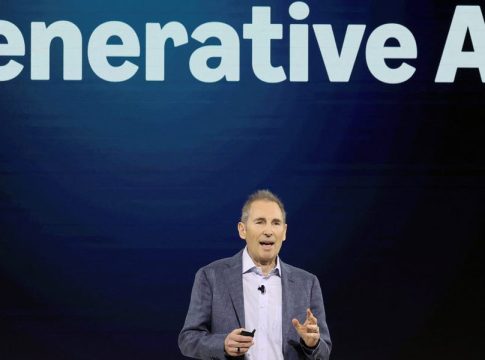AI: The Silent Job Disruptor Unveiled by Amazon’s CEO
The conversation around artificial intelligence (AI) and its impact on the workforce has been a gradual crescendo, but Amazon’s CEO, Andy Jassy, recently amplified the dialogue by declaring that AI is poised to significantly alter corporate landscapes and job roles. This bold admission has caused ripples across various industries and may open the floodgates for similar acknowledgments from other company leaders.
Amazon’s Bold Statement
In a recent memo, Jassy encouraged Amazon employees—who number around 1.5 million—as the second-largest private employer in the U.S.—to adopt more streamlined, "scrappier" teams. He underscored a critical point: the company’s move toward AI would ultimately lead to a reduction in its corporate workforce. Such transparency is a notable shift in corporate communication, particularly about workforce dynamics in the age of automation.
Cultural Modeling in the Workplace
Experts are weighing in on the implications of Jassy’s candidness. Marlo Lyons, a certified executive coach, suggested that Amazon’s straightforward approach may serve as a cultural blueprint for other organizations grappling with the nuances of AI integration. She asserts that if a powerhouse like Amazon is being upfront about the potential changes due to AI, smaller companies might feel more empowered to follow suit.
However, this transparency brings with it a dual-edged sword. While it may promote honesty in corporate culture, it also creates unease among employees who may feel that their jobs are under threat.
A Broader Trend Among CEOs
Jassy’s remarks are not isolated; they reflect a growing trend among CEOs to acknowledge AI’s transformative capabilities. For instance, Shopify’s Tobi Lütke emphasized that AI has become a baseline expectation in the hiring process, compelling managers to demonstrate that AI could not more efficiently fulfill any proposed role before bringing on new employees. Similarly, Klarna’s Sebastian Siemiatkowski revealed that his company paused hiring as they reassessed the roles that AI could assume.
The Risk of Workforce Downsizing
While the discourse around AI is increasingly open, experts like Cary Cooper caution that ambiguity surrounding specific job impacts can lead to “regrettable turnover”—losing valuable talent due to fear rather than fact. Companies must articulate which roles are likely to be affected and what retraining opportunities will be available, or risk facing a talent exodus.
Thomas Roulet, an organizational sociology expert, reiterates that linking layoffs to AI has become a strategic move for many firms, often as a response to external market pressures rather than robust planning for AI implementation. Many organizations overestimate AI’s immediate capabilities and may choose to downsize without fully understanding the technology’s integration timeline.
Conclusion: A Future with AI
The dialogue surrounding AI in the workplace is evolving rapidly, with corporate leaders starting to confront uncomfortable truths about job automation head-on. As Amazon takes a significant leap into the unknown, other companies will likely follow—whether out of necessity or encouragement.
For employees, the message is clear: adaptability will be key in an era where AI is not just an enhancement but a potential replacement. Balancing the fear of job loss with the opportunities for retraining and development will be paramount as organizations navigate this new frontier. The AI revolution is not a distant threat; it is already reshaping how we work today.

Writes about personal finance, side hustles, gadgets, and tech innovation.
Bio: Priya specializes in making complex financial and tech topics easy to digest, with experience in fintech and consumer reviews.

